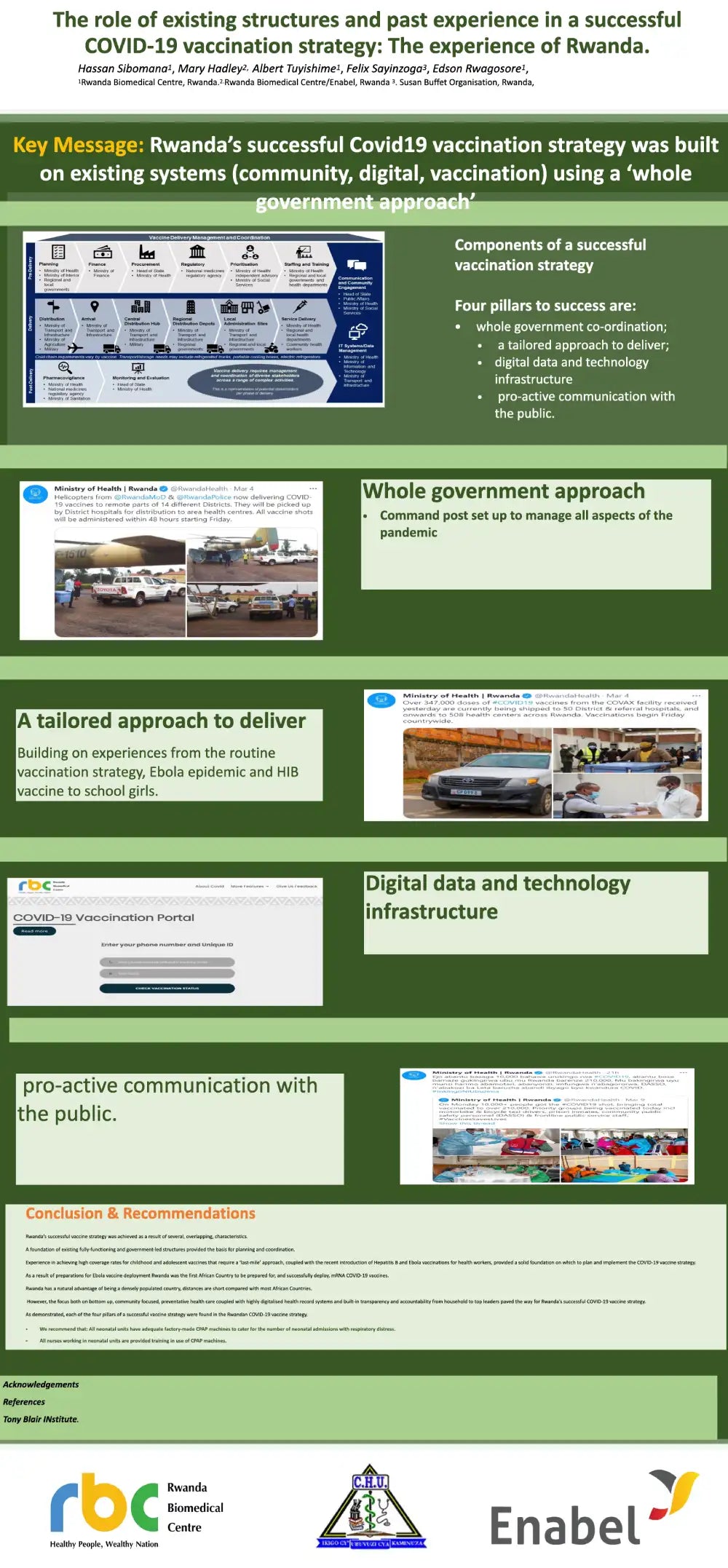Governance
The role of existing structures and past experience in a successful COVID-19 vaccination strategy: The experience of Rwanda.
The Covid 19 pandemic tried and tested every country. This was no less true when vaccines came on the market. Rwanda's story was one of success throughout the pandemic and was the only country in Sub Saharan Africa that attained the WHO target of 40% population fully vaccinated by December 2021 and almost 70% population fully vaccinated by June 2022. Using an existing framework we conducted a political analysis to identify the key factors that contributed to this success to provide lessons to the global community for preparation for future pandemics.
We examined pre-delivery, delivery and post-delivery strategies were examined against four essential pillars for success: whole government co-ordination; a tailored approach to deliver; digital data and technology infrastructure and pro-active communication with the public. We found that Rwanda fulfilled each of the essential pillars for success.
A multisectoral approach was deployed from the outset both at central and decentralised levels.
The approval, procurement, storage and transportation of vaccines to target population was data driven. Rwanda profited from high access to internet and a fully functioning online data base that could be adapted and utilised using local expertise. Finally, existing community structures were leveraged to sensitise, reach and follow-up the population living in both urban and rural areas.
We concluded that other low and middle income countries can use the lessons identified in this study to build a foundation for future health crises. Rwanda's response to the recent Marburg outbreak, applauded by World Health Organisation, also plays testimony to the benefits of robust health systems.


